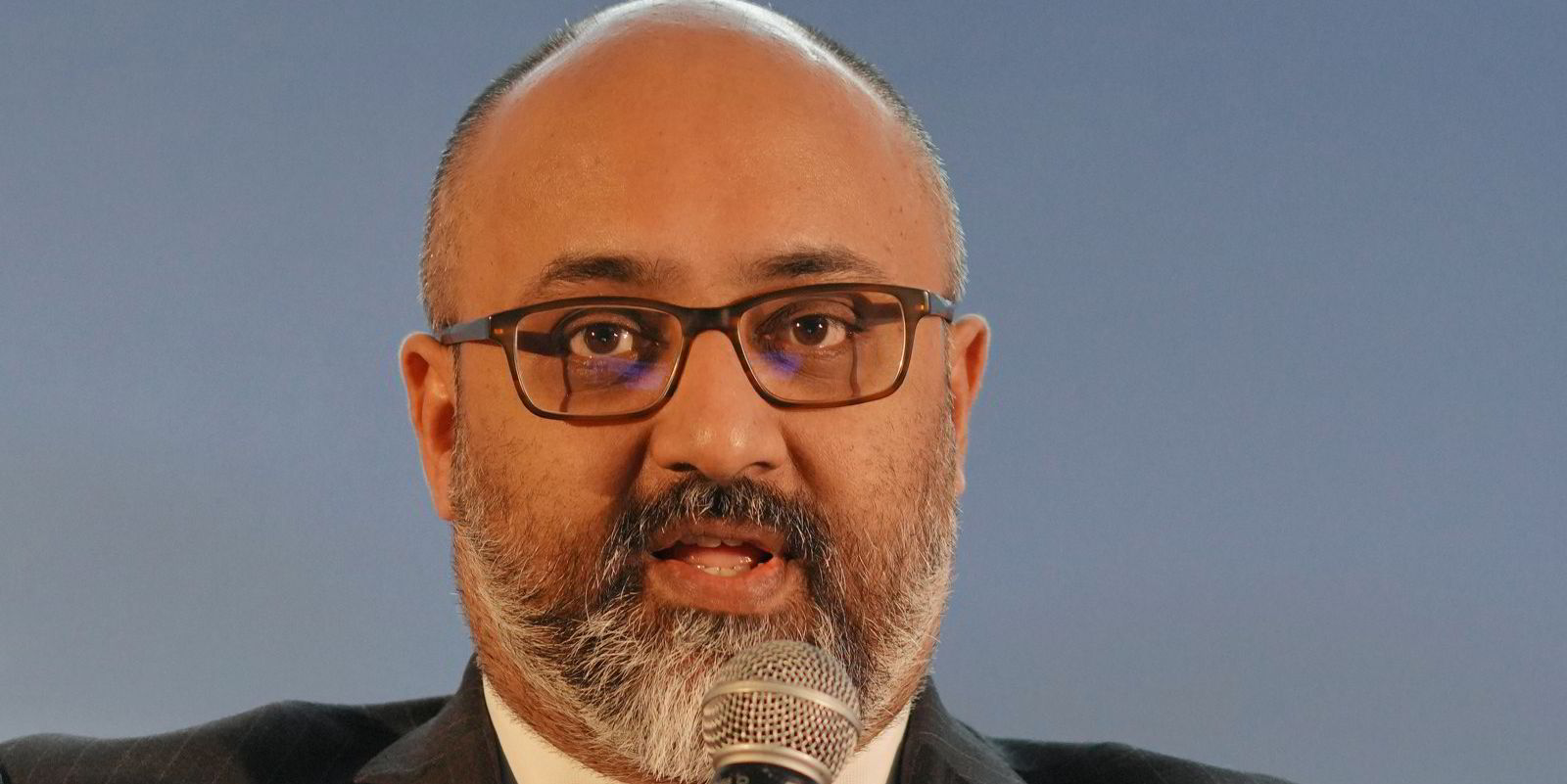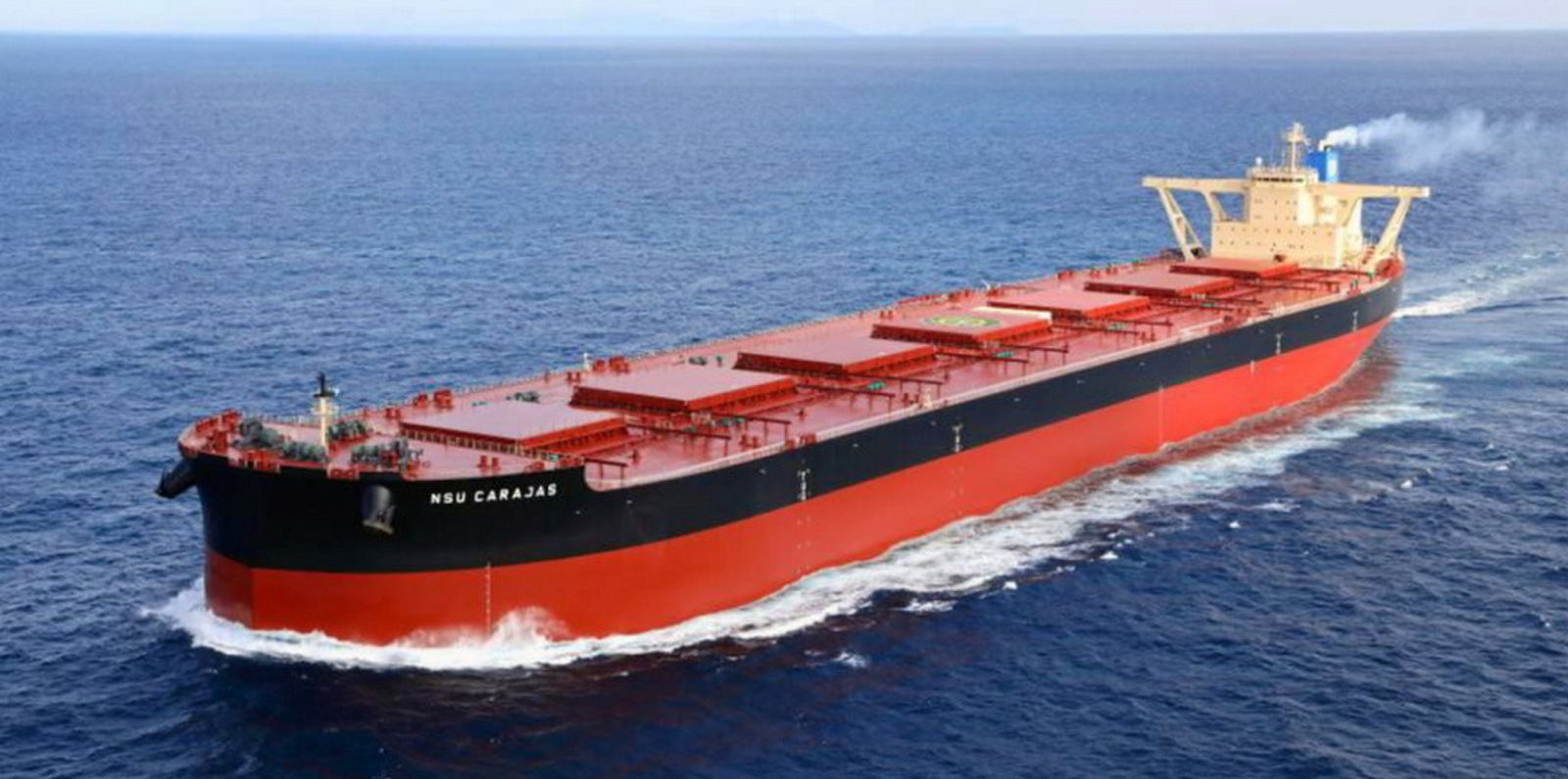It was a green theme that ran through the opening morning of Marine Money Week on Monday, and for a change the green was not mainly about the money.
The increasing weight of environmental, social and governance (ESG) issues — with a strong emphasis on the "E" part — dominated discussion during the early panels of what traditionally has been a three-day finance conference in New York, but held online this year due the continuing impact of Covid-19.
The most dramatic rallying cry might have come from Shreyas Chipalkatty, global head of shipping and logistics for Citi and a strong advocate for the Poseidon Principles lending protocols aimed at encouraging greener tonnage.
Asked about what can be done to solve a potential financing gap in approaching decarbonisation goals through cleaner propulsion systems, the banker minced no words.
"The first thing you have to do is throw out your current rule book — we have a gun to our head right now in terms of the environmental imperative," he said of the pressure facing lenders to bring about change.
Chipalkatty and peers on a lenders panel responded to a query from panel moderator Ole Hjertaker of Ship Finance Ltd, who wondered whether the Poseidon Principles were "still relevant" in the face of increasingly strong regulatory action from governments.
Increased relevance
"It is even more relevant for us now," insisted DNB Bank global head of shipping Christos Tsakonas, who said the Principles had been "an eye opener" in allowing the lender to place a carbon-emissions rating on its loan portfolio for the first time.
"There is a push to achieve even more — this is definitely something that is here to stay," Tsakonas said.
Paul Taylor, global head of shipping and offshore at Societe Generale, said advances already had been substantial under the Principles.

"At first people said they were overly ambitious and not realistic — now we're hearing people criticising the Poseidon Principles for not being ambitious enough and not being in line with the Paris climate change agreement. It shows how far this industry has come," Taylor said.
As long as shipping remains an industry that places an outsized demand on lenders for funding in comparison to capital markets, the banks will always have a major ability to shape change, Chipalkatty argued.
On a subsequent panel featuring financial shipowners, delegates heard a summation of the green movement's progress from Julian Proctor, chief executive of Purus Marine, the EnTrust Global-backed green leasing vehicle.
"To us everything starts with the blue economy — 2020 was a watershed year," Proctor said, citing reforms ranging from Chinese goals for a 2060 zero-carbon landmark to what he called "remarkable changes" in the US under President Joe Biden.
Proctor said the International Maritime Organization's goal for a 40% reduction in carbon emissions by 2030 will ultimately prove less significant than regional requirements imposed by governments.
"What you see at the regional level will be far more important," he said. "Regulations in the European Union will far more important than what happens with IMO. Chinese cabotage regulations will be far more important than what goes on with IMO 2030."






